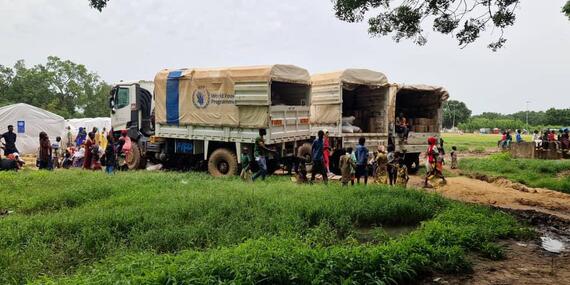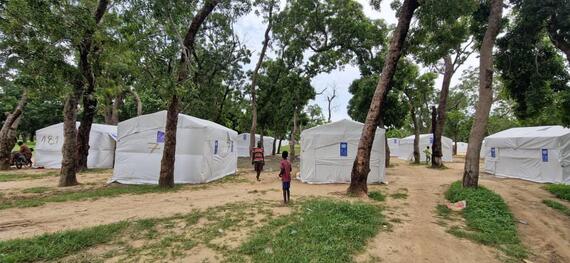Chad: UN, partners respond to massive nationwide floods

The United Nations Office for the Coordination of Humanitarian Affairs says major flooding is wreaking havoc in Chad, affecting all of its 23 provinces.
Since late July, heavy rains have triggered massive floods across the country, causing 175 fatalities and affecting more than 960,000 people. The country’s south-west region is facing the brunt of the floods, with more than 560,000 people affected.
The recurrent floods, which often hit the same communities each year, have severely affected people’s livelihoods and basic social services. This undermines communities’ ability to provide for themselves, forcing them to rely on humanitarian aid to survive.
The floods destroyed thousands of homes, and many families are now sheltering in schools and other temporary sites. As students are returning to class as the school season begins, those families will soon be forced to leave and will continue to need shelter, food, water and medical care.
The floods also severely impacted agriculture, with more than 250,000 hectares flooded and 30,000 heads of livestock washed away. With Chad’s malnutrition rates at a nine-year high, this will only aggravate an already dire food security situation. In February, Chadian authorities declared a national food security and nutrition emergency, and nearly 3.4 million people face acute hunger (IPC3+) in the current lean season.

Chadian authorities, UN agencies and humanitarian partners are distributing emergency aid, but high waters are hampering delivery. Bridges are collapsing, and some affected areas are only accessible by canoe.
The UN and partners need an estimated US$64 million in funding to help people affected by the floods. So far, donors have contributed only about 10 per cent of this amount.
Response capacity in Chad is already severely strained by the ongoing crisis in the country’s east, where large numbers of Sudanese refugees are sheltering to escape the conflict in neighbouring Sudan. Despite its own challenges and difficulties, Chad has historically welcomed people displaced by conflicts in neighbouring countries.
Even before the floods, humanitarian partners were working to respond to people’s humanitarian needs, including from violence, which continues to cause deaths and displacement. Nearly 220,000 people remain displaced in the Lake Chad area following years of insecurity.
To address the crisis, the 2024 Humanitarian Response Plan for Chad seeks $1.1 billion. However, it is currently only 35 per cent funded, at $393 million.
This year’s seasonal forecast predicts above-average cumulative rainfall up to September in flood-prone areas in the Sahel and some West African countries. This will deepen the needs of people already vulnerable due to chronic poverty, underdevelopment, conflict and political instability. More resources will be urgently required for the humanitarian response.
